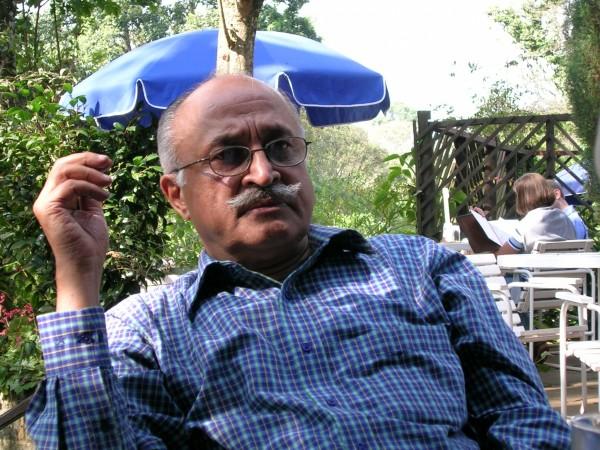
One terror suspect who was allegedly connected with a sinister plan was neutralised in an anti-terror operation in Thakurganj area of Lucknow in the wee hours of Wednesday (March 8).
IG, ATS, Aseem Arun said the terror suspect, identified as Saifullah, was a member of the Islamic State of Iraq and the Levant (ISIS) Khorasan module.
He was linked to the outfit that triggered a low-intensity blast in a Bhopal-Ujjain passemger train in Jabri station in Madhya Pradesh, injuring 10 people.
Does this mean ISIS has made its entry into India? International Business Times, India, spoke to Col Ramani Hariharan, the former head of India Peace Keeping Force Intelligence Corps and a man with rich experience in terrorism and counterinsurgency operations, on the matter.
Here are some excerpts from the interview:
IBT: Why is it that the ISIS has not been able to penetrate India as it would have liked?
Col Hariharan: There are a few reasons why ISIS has not penetrated India as much as it would have liked.
1. General observations: ISIS is a clone of the Levant branch of al-Qaeda. And it had to continuously fight to establish itself in Iraq and Syria with nine countries on many fronts.
Its fortunes started falling after two years of fighting and now its dispersing into many countries.
There were about 150 Indian IS cadre, though a few were involved in active fighting, others complained that they were treated as inferiors. So a few returned.
Last year, the Indian fighting group Al Hind was formed. We can expect more ISIS members to come to India as they disperse. They have not failed, but have had limited scope. Now with the group dispersing, trained fighters are expected to come to India; the recent train sabotages ascribed to ISIS are examples of the type of activity we can expect.
One terrorist connected with the train sabotage in Lucknow has been shot dead in a gun fight yesterday (March 7). So there will be more to come.
2. In South Asia, Al Qaeda-affilated groups based in the Af-Pak region have been mainly controlling jihadi activities. Even Pakistan-sponsored groups like LeT and JeM were linked to them. However, due to leadership changes and differences over the Pakistan operations, they are divided.
ISIS had been trying for last three years to get a foothold and there are now ISIS attacks in Pakistan. So we can expect them to follow up in India.
IBT: Often we see educated individuals going to work for ISIS and returning. And mostly, these individuals are from South India. Is there any specific reason for this?
Col Hariharan: Most South Indian Muslims working in Gulf countries and Saudi Arabia are better educated and well informed; and IT savvy. So they have the money, opportunity, knowledge and tech-resources to join ISIS if they are brainwashed.
They are returning because of job cuts, and a hostile attitude in Saudi and the Gulf to ISIS acivity (they have even repatriated suspected Indian terrorists).
IBT: Why is Kerala becoming a hot recruiting base for ISIS?
Col Hariharan: Kerala's Muslims have high literacy and form the highest segment of expatriate Indians in the West and Gulf countries. So they are politically conscious and keep track of their home state.
Islamic activism is historic in Kerala. The Moplah rebellion at the time of the collapse of the Ottoman empire (Gandhiji's Khilafat Movement) is an example. They have historic living links with the Arab world.
Many have been active supporters of the Muslim League even before Partition. The SIMI, which started in Bihar and spread to UP in the North, had the biggest following in Kerala. When SIMI was crushed, it broke up and the IM was formed, which became active post-Babri Masjid demolition as the govt was following a policy of appeasing Muslims. This has continued in coalition politics in the state. They are brainwashed easily through social media.








